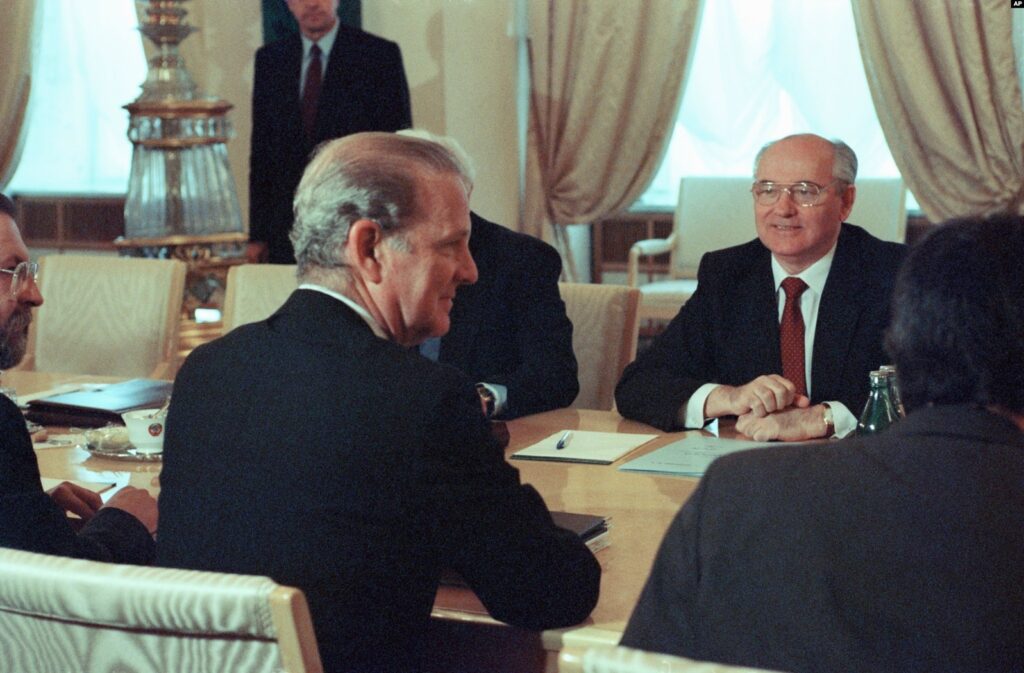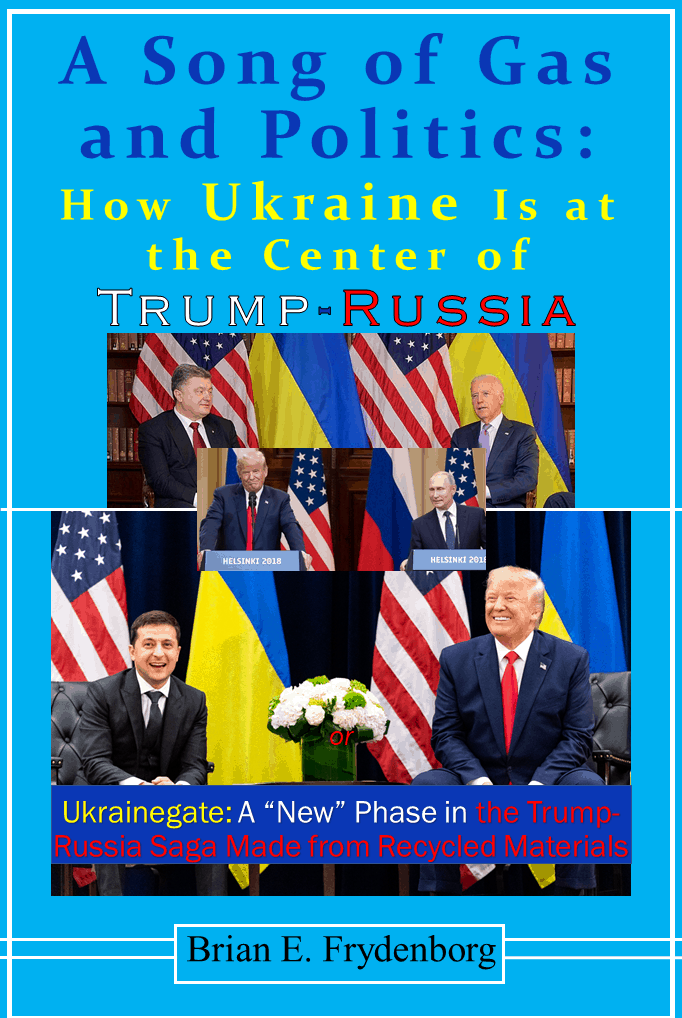He has Russians and useful idiots believing in mythology that was invented after the fact
(Russian/Русский перевод) By Brian E. Frydenborg (LinkedIn, Facebook, Twitter @bfry1981), March 1, 2022 (additional source on NATO expansion added March 3); excerpted and slightly adapted from his article The Utter Banality of Putin’s Kabuki Campaign in Ukraine published by Small Wars Journal the morning of February 21 and featured by SOF News on February 26; see related articles excerpted and slightly adapted from that piece:
- February 21: Why Is Putin Doing All This Now?
- February 25: How to Lose Nations and Alienate People, by Vladimir Putin
- March 16: Putin’s Zombie Russian/Slavic Ethnonationalism Is Utterly Banal
Also see March 8 follow-up Small Wars Journal piece The Beginning of the End of Putin? Why the Russian Army May (and Should) Revolt (featured on March 9 by Real Clear Defense, The National Endowment for Democracy’s (NED) Democracy Digest, and SOF News) and related articles excerpted and slightly adapted from that piece:
- March 9: A Look at Putin’s Disgraceful, Heartless, Barbaric Treatment of Russian Soldiers and Their Families
- March 11: On Casualties Counts in Russia’s War on Ukraine
- March 13: How Best to Penetrate Putin’s Media Iron Curtain in Russia? Dead Russian Troops
- March 19: Time for the Russian Army and Russian People to Revolt and Overthrow Putin
- September 16: I Saw This War Could Be Putin’s Undoing All the Way Back in Early March

WASHINGTON and SILVER SPRING—The mistreatment of peoples living under Moscow’s oppression in the Soviet era led most of Eastern Europe to vigorously pursue NATO membership in recent decades. After the Soviet Union’s collapse, many Eastern European states lined up for NATO about as fast as they could; they came to NATO asking for membership, not the other way around; NATO was not imposing anything on any of these countries against their wills, let alone even pressuring or pushing them in any direction they had not firmly decided to pursue because they wanted to or were very much willing to pursue in exchange for NATO membership. Other than the special case of East Germany, NATO did not rush states into the Alliance; it did not rapidly surround Russia or come to its border. Instead, NATO considered membership slowly for these countries, waiting, drawing out, even delaying that process over many years; some countries even had their bids for membership rejected at first. The process was transparent, even to Russia, and contingent on each country establishing civilian control over the military and, along with requirements for joining the European Union, involved becoming a stable democracy that respected human rights and made lasting legal and economic reforms. These states made it a top priority to join the NATO Alliance and organized their national priorities for years to meet these obligations before any were admitted, each country having a decent democracy and having its voters and leaders clearly choose this path as sovereign nations before becoming members.
We will not include East Germany in the coming list because of the special case of German reunification in 1990, but aside from it, before the fall of the Soviet Empire in Europe, with East Germany there were five additional communist Soviet satellite states that formed, with the Soviet Union, the Warsaw Pact (the Soviet-led communist counteralliance to NATO) and would eventually become NATO members along with three European republics within the Union of Soviet Socialist Republics (USSR/Soviet Union). One of the Warsaw Pact countries, Czechoslovakia, would become two countries, the Czech Republic and Slovakia, so that means that were eight countries (five Warsaw Pact states and three former Soviet republics) that were dominated by the Soviet Union that would become nine NATO members after the end of the Cold War.
These countries joyfully threw off Soviet and communist party control from 1988-1991, but it was not until 1999 that any were granted NATO membership (just three: Poland, Hungary, and the Czech Republic) and it was only in 2004, close to a decade-and-a-half after these countries had achieved independence, that the former Soviet socialist republics that would join NATO (Estonia, Latvia, and Lithuania) did along with the rest of the Warsaw Pact (Bulgaria, Romania, and Slovakia). Each one of these countries and peoples made clear national long-term choices of their own free will to do this, only too happy to turn away from Russian oppression and towards being a part of Europe and the West, NATO giving them the security of being able to preserve their new democratic gains free from Russian invasions (two that did not, Georgia and our topical Ukraine, have proven the need for NATO after being attacked militarily and dismembered by Russia). And quality, repeated polling shows these new NATO members are generally very confident today that their nations’ prior decisions to abandon Russia for the West and a Western democratic system were the right ones.
Other NATO expansion has been with countries that were independent actors and not in the Soviets’ sphere of influence when the Berlin Wall came tumbling down.

Another dimension to this is that Russia in this case believes—as an article of faith of Russian grievance victimhood mythology because of a “misunderstood” (or misrepresented) comment made decades ago—that it was “betrayed” by the West, stabbed in the back by a U.S. that “promised” NATO would not expand to the east after German reunification, even though this was based on one informal exchange in early 1990 throwing ideas around and not making any guarantees between then-U.S. Secretary of State James Baker and then-Soviet leader Mikhail Gorbachev, but the topic was about deployments of troops in the territory then comprising Eastern Germany, not NATO expansion to other states. And even Gorbachev’s himself, in his most recent comments on the subject, denies this narrative driven by Putin and the current Russian government, though this shifted somewhat from an opinion offered years earlier.
Remove Russian rhetoric and take in reality and you realize that NATO was not part of the discussion around Ukraine at this particular moment in time until Russia forced this issue, Ukraine has not been extended any kind of a formal invitation to NATO, this is not even being seriously discussed as a present or near-future option, and NATO—including, specifically and most importantly, the U.S. and Biden—has made clear Ukraine does not currently meet NATO’s qualifications for membership and is not even close. Keep in mind, too, as you are asked to understand the Russian “perspective,” that it is millions of Ukrainians and their legitimately elected leaders who have expressed a clear preference for the West over Russia and a desire to join NATO along with that: this is what they want, so much so they enshrined that goal formally into their constitution in early 2019.
A Natural Reaction, a Vital Principle of International Law and the Twenty-First Century
It should be no surprise that it turns out when Russia treats countries horribly, they do not want to enter in alliances with it and will, instead, eagerly break away from Russian domination when they can and just as eagerly join with NATO, as is their right as free and independent nations (the natural consequences of imperial collapse all throughout history, from which Russia is not immune).
Self-determination for a sovereign Ukraine does not have mean war with Russia, and only Russia will initiate that war of choice and only if it chooses. Its reasoning for war rests upon the most empty, banal, overused tropes from czarist Imperial Russia that claim Russians are an ethnicity above and apart from others, superior and blessed by Orthodox Christian God while destined to rule over the other Slavs and, at the lowest point in the hierarchy, other groups of people that surround the Slavs. What any of those people want is irrelevant, for it is Russia’s birthright destiny.
Without the free will and agency of these various peoples who had endured decades, sometimes centuries of oppression under Russian and/or Soviet rule, nothing NATO did would have resulted in countries formerly under Moscow’s sway becoming NATO members. But those peoples chose for themselves, and, in the case of Ukraine, Ukrainians actually have a say. And while the West will not die for their right to have that say, it can still support it all the same as they are now by supporting Ukraine in other ways and teaching Putin and Russians that a united West will not let Russia get away with literal murder (among other things) without paying a steeply heavy price, as seriously harmful to Russia as its rationales for its Ukraine mischief are mindlessly tedious.
Either we live in a world where the idea that a democratic nation has a right to freely choose to enter into alliances and partnerships its leaders and people deem desirable without having to face military attacks as a result or sovereignty with the legitimacy of the consent of the governed has no real meaning and war will become an increasingly preferred political tool.
See all Brian’s Ukraine coverage here
© 2022 Brian E. Frydenborg all rights reserved, permission required for republication, attributed quotations welcome
Also see my eBook, A Song of Gas and Politics: How Ukraine Is at the Center of Trump-Russia, or, Ukrainegate: A “New” Phase in the Trump-Russia Saga Made from Recycled Materials, available for Amazon Kindle and Barnes & Noble Nook (preview here), and be sure to check out Brian’s new podcast!

If you appreciate Brian’s unique content, you can support him and his work by donating here
Feel free to share and repost this article on LinkedIn, Facebook, and Twitter. If you think your site or another would be a good place for this or would like to have Brian generate content for you, your site, or your organization, please do not hesitate to reach out to him!